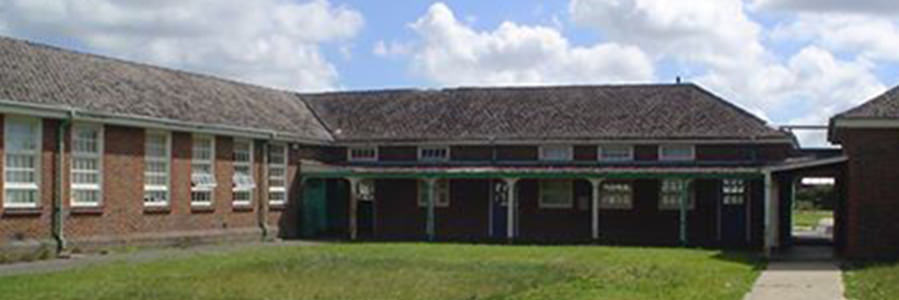Poetry and short stories
In 1963 Walker obtained a teaching post in Bognor Regis and from there moved to Chichester High School. He had also started to write poetry regularly and of a quality that made it welcome in journals such as The Listener, The Observer, the Times Literary Supplement and the London Magazine. It drew the attention of William Plomer, then poetry editor at Jonathan Cape and a powerful figure in the poetry world. Walker had also submitted poems to The New Yorker, where Howard Moss made his work welcome. The fee which Walker received for his first poem to be published in The New Yorker, “Breakwaters” (published June 1963) helped him to move back to his native Sussex. Looking for a new source of income, Walker taught himself the art of short story writing, and his first short story, “Estuary”, appeared in The New Yorker in April 1964.
Other key influences on his literary development included the Welsh poet Leslie Norris and canon of Chichester Cathedral, the Scotsman Andrew Young, both near neighbours, as well as the critic Robert Gittings.
Walker’s first book of verse, Fox on a Barn Door, focused on the Sussex countryside and coast. The titles of a good third of the poems – such as “Breakwaters”, “The Skate Fishers” and “On the Sea Wall” are about the shoreline of Lancing and Shoreham. The South Downs likewise provided inspiration.
Journalism and broadcasting
In the 1970s Walker was a contributor to his local newspaper, The Chichester Observer, where his regular column on West Sussex villages fascinated (and often enraged) the county set. He also began broadcasting with BBC local radio and TV. In 1979 he worked on a TV dramatisation with BBC Bristol producer Colin Rose. It was the start of a productive relationship. Their output included Big Jim and the Figaro Club (1981) and A Family Man (1983). Big Jim, a series of comedy films set during the post-war building boom, extolled the comradeship which, for Walker, epitomised working-class life “in them far-off days of the Figaro Club before the world turned lax and sour”.[9] A Family Man dealt with several generations of father-son relationships, drawing deeply on Walker’s own family history.[9]
Walker also wrote plays for Shaun McLaughlin in BBC radio drama and adapted Kenneth Grahame’s The Wind in the Willows (1995) for TVC (Television Cartoons)’ animated production with a voice cast including Alan Bennett, Rik Mayall, Michael Palin and Michael Gambon.
Later life
For most of his working life (1971–92) Walker earned a living as Professor of Creative Writing at New England College, an American liberal arts academy that had a British campus in West Sussex, while pursuing his writing and other great passion, travel. He was a frequent visitor to Spain, and in 1989 he published an account of his experiences and impressions of the country, In Spain. Although this was Walker’s only significant venture into travel writing, it was greeted by critics as one of the finest portraits of the country. For example, Jan Morris listed it as one of her favourite books on Spain, describing it as “rich in details and sensations”. After a long hiatus Walker returned to poetry with Mangoes on the Moon (1999), with many poems inspired by his travels in Australia.
In 1987 Lorna Walker died after a long battle against cancer. A year later Walker married their close friend, Audrey Hicks, who had been similarly bereaved.
In The Last of England Walker tells the moving story of Lorna’s disfiguring illness, and his own grief at being robbed of their anticipated years of retirement together. The cancer also serves as a metaphor for what Walker saw as the unrelenting decay of the England so lovingly described in The High Path.
In 1997 Ted and Audrey Walker moved to the village of Alcalali near Valencia, Spain, where he died in 2004.
Honours
Walker’s early poetry won many prizes, including the Eric Gregory Award (1964) and the Alice Hunt Bartlett Prize. He was the first winner of the Cholmondeley Award (1966). Walker was elected a Fellow of the Royal Society of Literature in 1975 (he resigned this title in 1997). Southampton University granted Walker an Honorary D.Litt. in 1987.
Literary work:
Poetry
Fox on a Barn Door (1965);The Solitaries’ (1969) – winner of the Alice Hunt Bartlett Prize; The Night Bathers (1970);Gloves to the Hangman (1973);Burning the Ivy (1978);Hands at a Live Fire (1987);Mangoes on the Moon (1999);The Fight (1997)
Short stories
You’ve Never Heard Me Sing (1985); He Danced with a Chair (2001)
Autobiographies
The High Path (1982) winner of the J. R. Ackerley Prize for Autobiography; The Last of England (1993)
Children’s books
The Lion’s Cavalcade (with Alan Aldridge, 1981); Granddad’s Seagulls (1994)
Travel
In Spain (1987)
Television and radio
The Gaffer; The Family Man; Big Jim & the Figaro Club; The Wind in the Willows
To view the Ted Walker archive please contact the Head of Library Services, Learning Resource Centre, University College Chichester, College Lane, Chichester, West Sussex, PO19 6PE (e-mail address: S.Robertson@ucc.ac.uk), telephone 01243 816090.
Extracted from Wikipedia
He taught Spanish in the days of Ken Anderson and, in my memory of him, he always wore a fawn corduroy jacket. After teaching at the School I believe he was a lecturer at the American college at Tortington (near Arundel, now converted into houses and flats). He lived near Barnham/Westergate. Several of his collections of poems were published: “Fox on a Barn Door” probably being the best known and certainly well-worth seeking out a second-hand copy if you enjoy poetry written against the background of the Downs and coastline of West Sussex.
Stewart Kempsell

